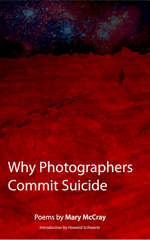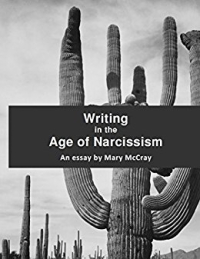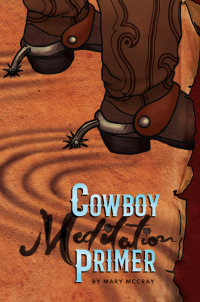 So there was this kind of event that happened at Sarah Lawrence when I was there where fellow poetry students would put out flyers for little gatherings outside of classes and workshops, like impromptu discussions. I went to two of them, (that I remember anyway). One was on making a living as a technical or business writer organized by the poet Ann Cefola. I never did persue a professional writing career, (as soon as I discovered I had quite limited amounts of creative energy reserves), but Ann I became friends at that event and have remained supportive colleagues ever since that day. The other gathering was organized by a poet named Karl. I still have his flyer: "The Common Table: The Prose Poem." A bit pretentious sounding but I was always curious about prose poems and how they diverged from fiction shorts or shock fiction. At this event we were to determine the borderlines were actually very fuzzy.
So there was this kind of event that happened at Sarah Lawrence when I was there where fellow poetry students would put out flyers for little gatherings outside of classes and workshops, like impromptu discussions. I went to two of them, (that I remember anyway). One was on making a living as a technical or business writer organized by the poet Ann Cefola. I never did persue a professional writing career, (as soon as I discovered I had quite limited amounts of creative energy reserves), but Ann I became friends at that event and have remained supportive colleagues ever since that day. The other gathering was organized by a poet named Karl. I still have his flyer: "The Common Table: The Prose Poem." A bit pretentious sounding but I was always curious about prose poems and how they diverged from fiction shorts or shock fiction. At this event we were to determine the borderlines were actually very fuzzy.
The flyer quotes Charles Baudelaire, (considered the first prose poet and the one who coined the term), and his preface from Petites Poemes en Prose about the "miracle of a poetic prose…supple enough and rugged enough to adapt itself to the lyrical impulses."
Oh la la. The flyer then goes on to talk about this "confounding form" that is not an "unstructured monster" but "subtle" and how "you know a prose poem when you find one."
Or write one. I have written many pieces over the years I consider somewhere inbetween prose poems or fiction shorts. I've also been known to perform prose-poem opportunism, like for this poem "Orgasmic Orange" which is truly a three stanza lyric poem but here is masquarading as a prose poem.
And then I have many, many poems that intially came out as prose but they don't seem rightly prose and so were changed into verses (sometimes going back and forth a few times to figure out what they really were). "Fortune" is a recent example of a poem that initially came out like a longish prose poem and then was shaped back into tighter verses. And I think "tight" or "loose" here are my personal keywords when determining which direction to go in.
But nobody seems to agree on what the rules or the tools are or how to define the prose poem.
There's an excerpt in this packet from Introduction to the Prose Poem: An International Anthology edited by Michael Benedikt who agrees we are "in the midst of" an exploration on what prose poetry is," a genre "self-consciously written in prose" and forgoing the device of the line break. He says a key word for him is "intense," and says the form has a structure with its "own independent internal logic…metaphor and analogy" using "a music more internal" and "subtle" where the "line is not present to underline musical effects."
He notes that some of "the major poets in verse" worked with prose poems toward the end of their careers "when their command of poetry and their sense of its possibilities were presumably at their most practiced and acute:" Baudelaire, Rimbaud, Mallarme and Valery.
The packet then includes a deep dive into Michael Benedikt's poem "The Meat Epitaph" and how he drafted versions. He was very organized and kept each draft coded in file folders! My notes on this section quote Princeton Encyclopedia's definition of the prose poem as a form of contractions that undermine the action, how over time, poetic devices have become less effective and what does a line by itself mean; often it contradicts the sentence it is in ," [which is what I've always liked about it].
Anyway, Benedikt talks about the contradiction he was working with in his poem: how an "impious human" can write "morally concerned…poetry without betraying either the impiousness of the Self or the seriousness of the subject."
Benedikt talks about aspects of his process and whether prose poetry is "freely associative" and how structure finds its way into free verse and what poetic divices are still in play in the prose poem but that prose poems often read with a kind of "flat" style and borrow qualities from the surrealists.
My marginalia from the conversation has extra definitions:
- Self-consciously a poem in prose using poetic devices: sound, meter, repetition" [but short fiction can also do this]
- "5 elements: (1) logic of the unconscious; (2) every day speech; (3) relativity, the idea that reality is questionable [more an idea of modernism really]; (4) wit and humor, black humor; (5) politically and socially skeptical, questioning of fixed ideas [again, modernism really]
We also talked about how pieces like "A Potato" by Robert Bly have a kind of fable-like quality, that these pieces are not always linear, not always "about something" or to "further some idea."
One question remains for me based on one note toward the end of the conversation: "form of prose poem is rectangle (box); pack only essentials."
Is this true? Or is there room for more superfluous storytelling in prose pieces than verse? Because usually when I convert something back into verse, a lot has to go and I shave out quite a bit. So are prose poems more economical than verse poems? In some ways they might need fewer words than a long-form poem but have more breathing room than a short lyric poem has or a haiku obviously.
Packet poems:
- "Bloating and Its Remedies" by Jim Heynen
- "Cows in Trouble" by Steve Martin (one of my favorite shorts/prose poems)
- "The Meat Epitaph" by Michael Benedikt
- "The Five Fingers of the Hand" by Aloysius Bertrand
- "The Old Woman's Despair" by Charles Baudelaire
- "The Sirens" by Franz Kafka
- "The Victory Burlesk" by Margaret Atwood
- "A Potato" by Robert Bly (another one of my favorites that I typed out here)
- "The Wheelbarrow" by Russell Edison
- "The Broken" by W. S. Merwin
- "Vespers" by W. H. Auden
- "Clocks" by Julio Cortazar
- "Pretty" by Jayne Anne Phillips
- "Laura's by Gunter Eich
At the meeting, Karl also provided a bulleted list of poets who have tried the form, a list which is too long to recreate here but here are some highlights not already mentioned above:
- Charles Mallarme
- Arthur Rimbaud
- Juan Ramon Jimenez
- William Carlos Williams
- Jorge Luis Borges
- Tomas Transtromer
- Charles Simic
- Pablo Neruda
I would add to this list:
- Gertrude Stein (why does she always get left out of these things?)



